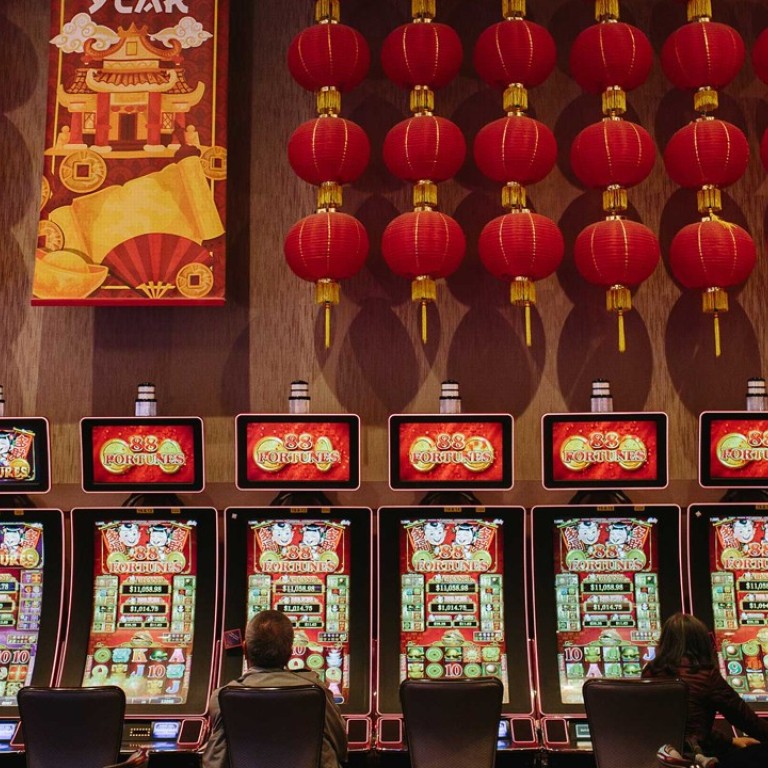
What next for Vancouver, the city awash with too much Chinese money?
- The Canadian seaport was the first place to experience a tidal wave of often-dirty Chinese cash.
- Now it is the first to try and stem the flow.
The black coupe pulled up outside the Starlight Casino in a suburb of Vancouver. The driver got out, greeted a man in a red shirt and pulled two bulging white plastic bags from the boot. He led the way into an empty noodle shop next door, where he handed over the bags before returning to the car. The man in the red shirt took the bags into the casino, through a cavernous glass lobby with signs in English and Mandarin. At a cashier’s desk, he opened one of the bags to present his cargo: thousands of green C$20 bills, bound into loose bricks with yellow plastic bands.
The cashier’s counting machine would need to run continuously for more than 10 minutes to riffle through all the notes, which came to more than C$250,000 (today the equivalent of US$190,000; HK$1.5 million). Converted into chips that could be cashed out later, whether or not they had been wagered at the tables, the money would be spendable anywhere in Canada, unimpeded by questions of provenance.
The transaction at the Starlight on that winter day in 2009, depicted in video footage released this year by the government of British Columbia, was one of thousands made in and around Vancouver over the past decade. Known abroad primarily for its stunning Pacific Coast setting and athletic lifestyle, the city has since become one of the world’s largest sluices for questionable funds moving from Asia into Western economies.
One academic terms the process “the Vancouver model”: a seamy mingling of clean and dirty cash in casinos, property and luxury goods made possible by historical ties to China, and by Canada’s lax record of fighting financial crime.
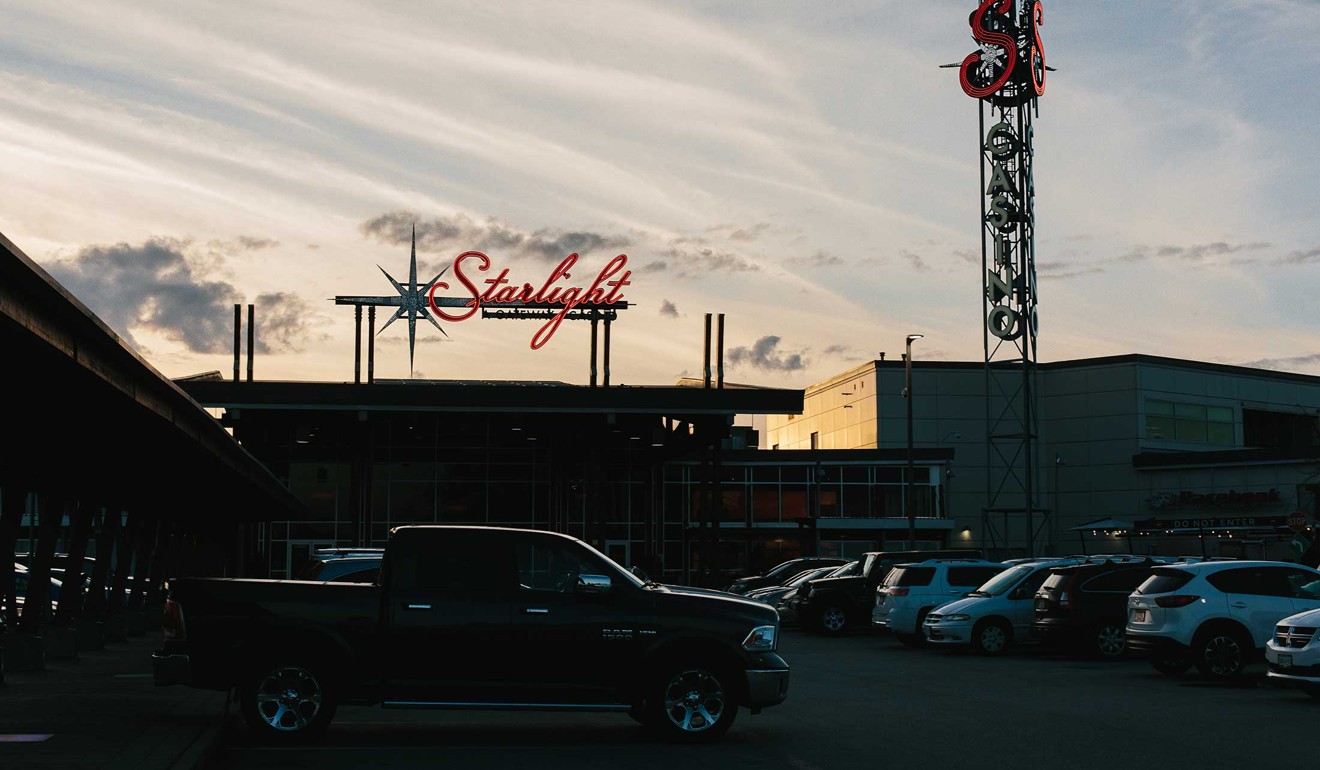
It is a product of one of the largest financial flows of the 21st century: the money being frenetically shuffled by millions of wealthy Chinese into safe assets abroad, in defiance of their country’s capital controls. Since mid-2014, capital flight from China may have totalled as much as US$800 billion, according to estimates from the Institute of International Finance.
In Vancouver, the tidal wave has wrought a dramatic economic, demographic and physical transformation. Alberni Street, a formerly dowdy downtown thoroughfare, has in the past decade welcomed a two-level Prada boutique with a black marble facade, one of the largest Rolex showrooms in North America, and a 62-storey tower with a five-star Shangri-La hotel. All have Mandarin-speaking staff.
In May, Rolls-Royce chose Vancouver to unveil its first sport utility vehicle, which starts at more than US$300,000, hosting a champagne reception at its sleek new local showroom in an upmarket neighbourhood about 3km south of Alberni. Six sold on the first day – bound, perhaps, for the “car condo”, a kind of luxe garage with customisable suites that is being built in a majority-Asian suburb. The units start at more than C$800,000 and the first batch recently sold out.
Much of the money coming in has been legitimately earned, if sometimes extricated by grey-market means. But officials say that a substantial proportion is the proceeds of corruption or crime, including the illegal sale of opiates such as fentanyl. With public anger rising over astronomical housing prices and an economy distorted by wealthy outsiders, British Columbia’s left-leaning government – elected last year on a platform focused on calming the property market – is building a global laboratory for policies meant to restrain the arrival of Chinese money. The province is hiking taxes, toughening transparency rules and tightening oversight of casinos and financial institutions.
Change will be difficult and fraught. Vancouver has been closely connected to Asia since the late 19th century, when the first Chinese labourers arrived to help build the trans-Canada railway, and the city is proud of its record of integrating immigrants. Also, beyond property, Vancouver’s economic base is shallow. It is not the business capital of western Canada – that is Calgary – and it has few major corporate headquarters or large-scale manufacturing operations. “Asian capital has kept this economy alive, end of story,” says Ron Shon, a Chinese-Canadian venture capitalist who arrived as a teenager in the late 1960s. “You can see it in every aspect of our lives.”
The money is arriving so fast, and in such volume, though, that standing by is no longer an option. Vancouver was perhaps the first major Western city to experience the full force of Chinese capital. Soon, it could be the first to learn what happens when you try to stop it.
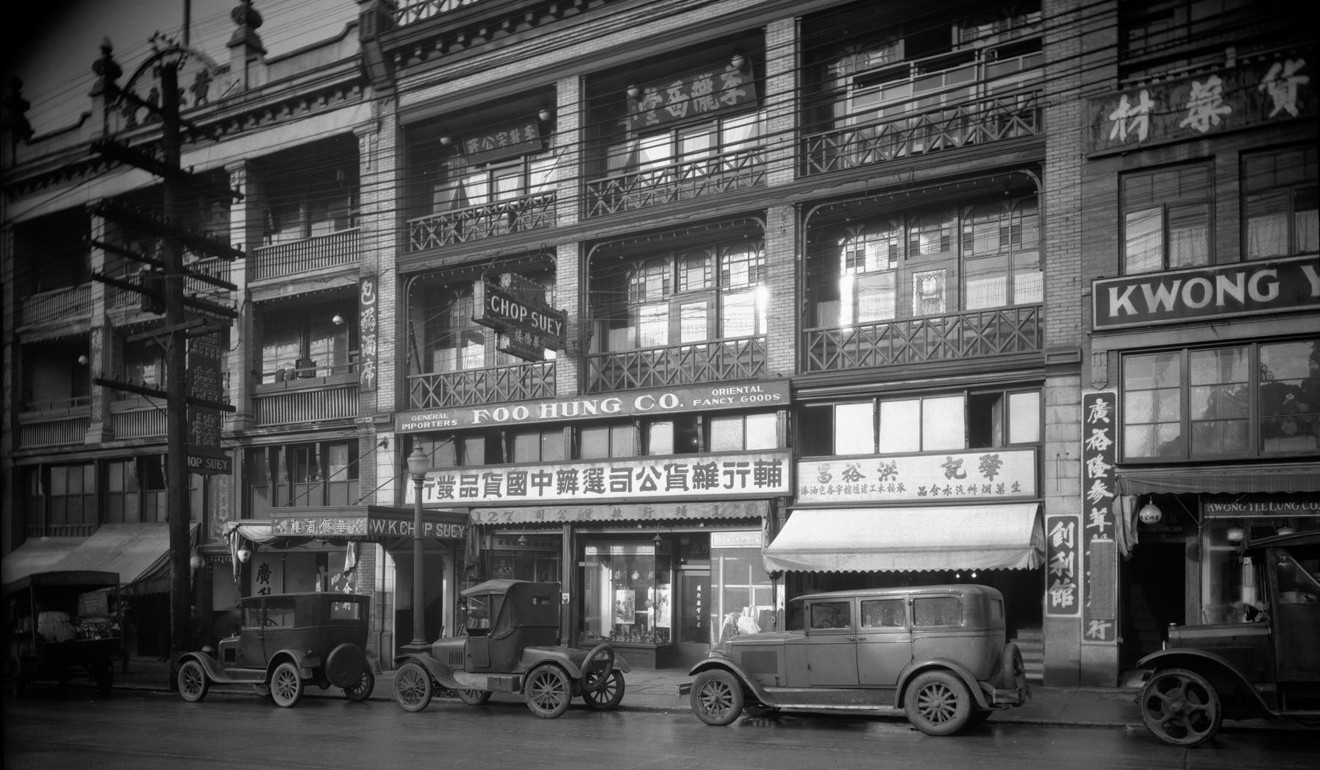
Canada’s west coast is one of North America’s most rugged environments, with a 1,000km stretch of towering mountains serrated by steep glacial valleys, and all but uninhabited for most of its length. Vancouver lies near its southernmost point, on a pair of flattish peninsulas positioned like a thumb and forefinger, and bordered by peaks dusted almost year-round with snow. From the beginning of European settlement in the mid-19th century, it was obvious that the city, with its deep natural port, would be a maritime gateway, leading the Canadian Pacific Railway to choose it as its western terminus. Vancouver quickly became a way station for Canada’s natural bounty, with sawmills crowding the waterfront and saloons catering to gold prospectors headed inland to find fortune.
Anti-Chinese prejudice started early and intensified rapidly. In 1885, as the railway was being completed, Canada introduced a “head tax” meant to stem the flow of Chinese immigration; the tax rose steeply in 1903. Four years later, members of the Asiatic Exclusion League rioted in Vancouver’s Chinatown, beating up residents and ransacking stores. In 1923, Canada passed what came to be known as the Chinese Exclusion Act, banning most immigration from China and requiring anyone of Chinese descent to register with the authorities. It was not until 1947 that ethnically Chinese residents were allowed to vote.
Desperate Chinese middle class take big risks to move money, and themselves, overseas
When Canada, hungry for foreign workers and investment, liberalised its immigration policies in the 1970s, Vancouver again became a natural destination. Many people came from Hong Kong, a trend that accelerated after Britain agreed in the early 1980s to hand back the city to China in 1997.
In 1988, Hong Kong real estate and infrastructure tycoon Li Ka-shing agreed to pay C$320 million for a stretch of industrial land on False Creek, the narrow inlet that separates the city’s two peninsulas. It was the largest land deal in Vancouver’s history, and the slender, glassy residential towers that Li erected there established the template for rapid redevelopment elsewhere in the city. Buildings like these welcomed many more Hong Kong immigrants, an increasing proportion of Taiwanese, and, eventually, mainlanders, many of them wealthy. In China, Vancouver became almost a byword for prosperity: One of Cathay Pacific’s daily flights from Hong Kong is numbered 888, the luckiest possible three-digit set.
Canada’s immigration regime is weighted heavily toward applicants with marketable skills, and it offers other advantages to the better-off as well. Citizenship can be gained after as little as three years of residence, and taxation on income earned abroad is spottily enforced. These provisions have contributed to the proliferation of “astronaut” families, in which a primary breadwinner remains largely overseas while a spouse and children live in Vancouver or Toronto. Many such immigrants “are already successful, so it’s quite easy for them to make money in China”, says Richard Zhang, an industrial-development executive who arrived in 2006 from Hebei province. “Why would they give that up?”
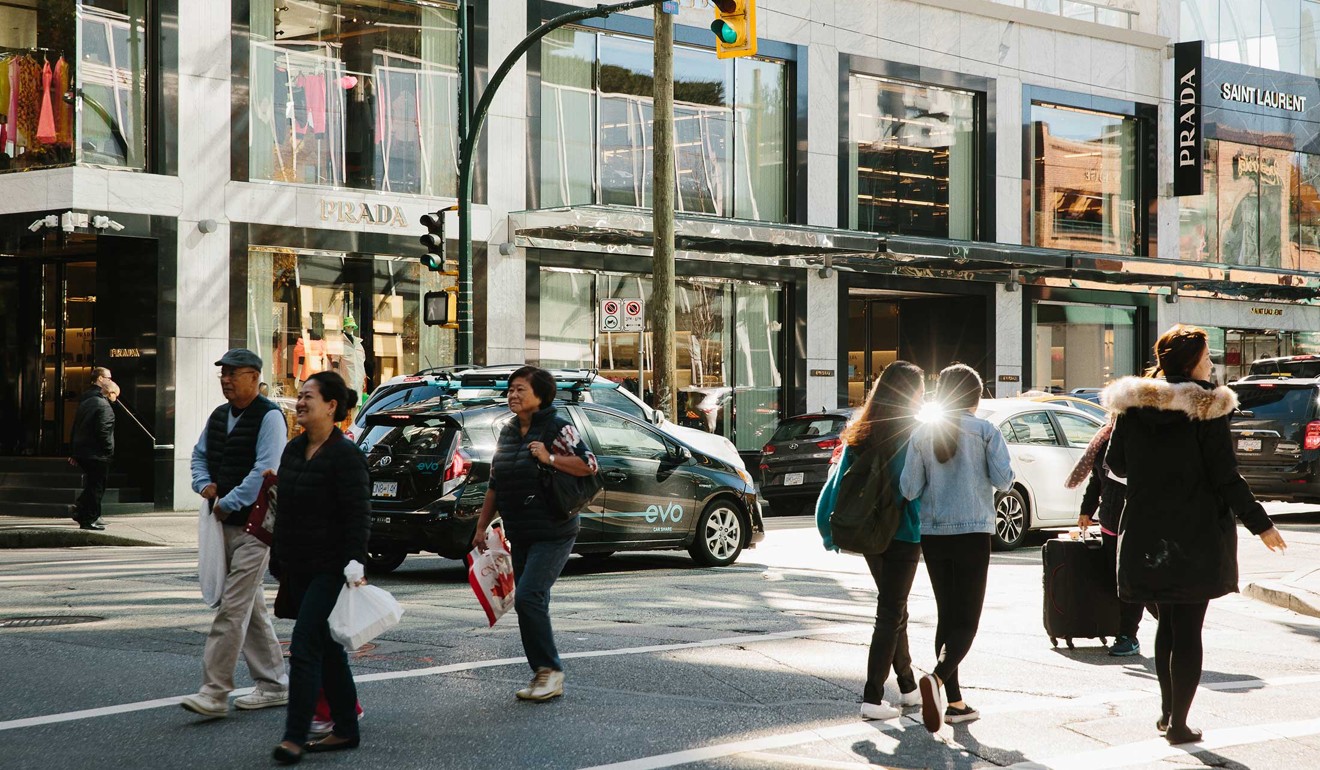
Canada admits about 300,000 new permanent residents a year – a much higher proportion, relative to population, than the US – and all its major political parties tout the economic and cultural benefits of immigration. Polls consistently show similar attitudes among the public. Vancouverites have tended to welcome new arrivals, in part because they have brought in money – and lots of it. Thanks substantially to purchases by wealthy foreigners, the city’s property values are now the highest in the country. The median cost of a detached home in Vancouver proper has tripled since 2005, to C$1.5 million, making millionaires of thousands of homeowners.
During much of this build-up, “no one was complaining”, says Chip Wilson, controversial founder of clothing retailer Lululemon Athletica, one the few international brands to come out of the city. “If you’re 60 years old and you want to retire, well, you’ve got a two-and-a-half-million-dollar house. You sell it, you move to one of the most beautiful islands in the world off the coast here for C$500,000. You’ve got C$2 million in the bank, and Bob’s your uncle.”
Recently, attitudes have changed. The signs were visible around 2010, when a surprisingly challenging online game called “Crack Shack or Mansion?” appeared, asking players to guess from photos whether a decrepit house was a drug den or the object of a seven-figure listing. The angst only deepened as neighbourhoods emptied of long-term residents and many younger Vancouverites gave up hope of ever affording a home. Rather than the clean, green Pacific hub of its leaders’ dreams, the city came to resemble a rainy Monaco, albeit one with better dim sum.
British Columbia’s centre-right Liberal Party, which governed from 2001 until last year, long downplayed the role of overseas money, accepting developers’ arguments that high prices were the fault of a Byzantine planning bureaucracy and shortages of buildable land. But in 2016, with an election coming and property values continuing to skyrocket, the Liberals imposed Canada’s first tax on foreign purchasers, a 15 per cent surcharge applied to anyone without Canadian citizenship or permanent residence who was buying a home in or around Vancouver. For many voters, it was too late, and the opposition New Democratic Party (NDP) narrowly won power after promising to restrain the market.
The new NDP premier, John Horgan, increased the surcharge to 20 per cent and expanded its geographical scope. His government plans to levy a 2 per cent annual fee on vacant property owned by foreign investors and has begun closing loopholes allowing buyers to dodge taxes on condo purchases and property transfers.
Of course, for these changes to be effective, the government will need to know who actually owns property in Vancouver. Government agency Statistics Canada did not release figures on foreign property ownership until 2017, when it reported that non-residents of the country owned more than 7 per cent of the city’s dwellings. The federal housing agency says that is an underestimate, though, because overseas investors can route purchases through Canadian relatives or shell companies. In 2016, Transparency International found that the ownership of almost half of Vancouver’s 100 most expensive properties, representing at least C$1 billion in anonymous wealth, was effectively untraceable.
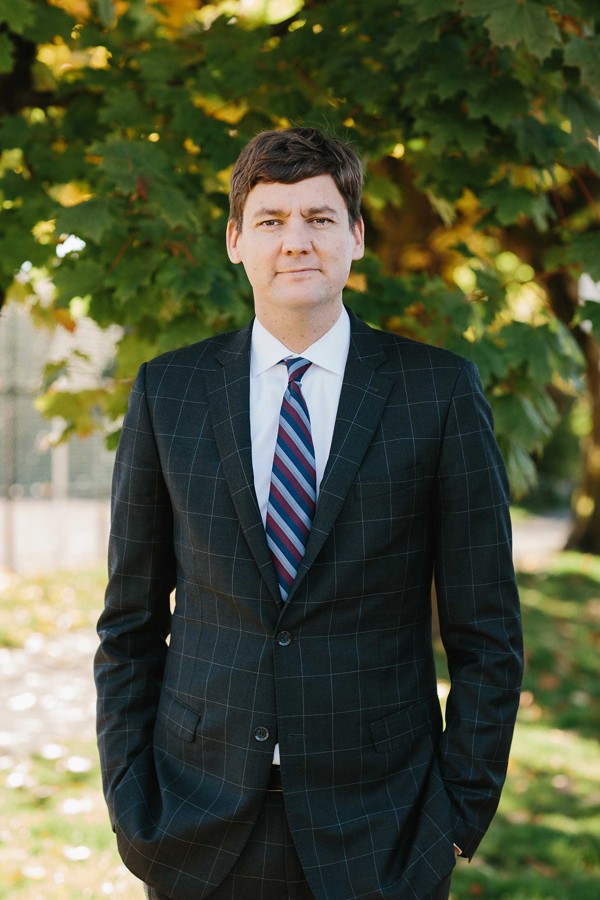
David Eby, British Columbia’s new attorney general, has experienced Vancouver’s transformation more directly than most. A member of the provincial legislature for the NDP since 2013, he represents Point Grey, an affluent area whose secluded beachside mansions include several of Canada’s most expensive properties; the median home there is worth about C$3.2 million. Even while Eby was in opposition, it was apparent to him that his community had what he calls “a very clear link with international activities and laws, specifically China’s currency restriction”. In 2016, he disclosed that C$57 million worth of real estate in his district had been bought by students with no reported income.
A 41-year-old lawyer, Eby looks considerably younger, with a rounded, boyish face and thick brown hair that he began trimming shorter as his political star rose. Standing two metres tall, he has to cram himself into a chair during an interview at Canada Place, a 1980s complex featuring postcard-perfect views of the harbour and the white-capped mountains beyond.
Our jurisdiction provides a number of very helpful structures if you wish to conceal funds. We have a landownership system that allows you to conceal the true owner … We have very limited enforcement
Eby spent much of his pre-political career leading the province’s civil-liberties association and writing a handbook on the rights of the arrested. He has nonetheless embraced his role as enforcer-in-chief. “From my very first day on the job, it was overwhelmingly obvious to me that we had a huge problem,” he says. “Our jurisdiction provides a number of very helpful structures if you wish to conceal funds. We have a landownership system that allows you to conceal the true owner … We have very limited enforcement.”
The loopholes in British Columbia are as majestic as the mountain vistas. It is perfectly legal, for example, to purchase the shares of a “bare trust”, whose sole asset is a home, rather than buying the property itself. Technically, the title never changes hands, allowing the buyer to avoid land-transfer taxes. Until September, it was also possible to buy a property using an anonymous corporation with a lawyer as its lone director, or to appoint a “nominee shareholder” who controlled this anonymous company – without disclosing the true ownership in either case.
China warns its citizens against marijuana after Canada legalises it
Meanwhile, lawyers in British Columbia, as in the rest of Canada, are exempt from key provisions of anti-money-laundering law, a standard that national lawyers’ associations went to the Supreme Court to protect, on grounds of lawyer-client privilege.
Soon after taking office, Eby commissioned an independent investigation of the gambling industry. The resulting report, released in June, concluded that “large-scale, transnational money laundering has been occurring in our casinos” and warned that those funds are filtering further into the economy.
Among its findings: for years the casino regulator’s anti-money-laundering unit was not staffed during evenings and weekends. And until reforms kicked in earlier this year, rules requiring casinos to report suspicious customers had largely been treated as box-ticking exercises. The C$250,000 drop at Starlight in 2009 was one of many transactions that should have raised bright red flags. The following year, someone was permitted to convert C$3.1 million, mostly in C$20 bills, into chips there.
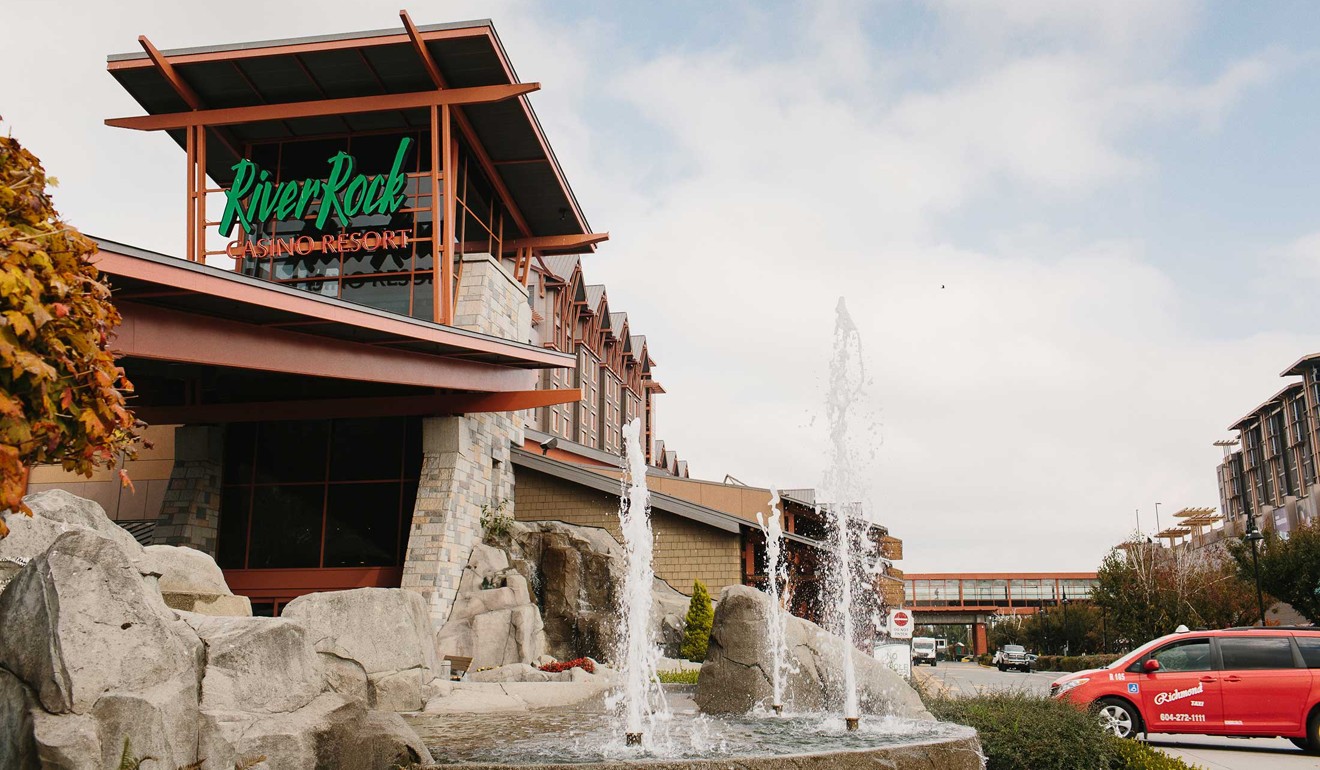
The operators of Starlight and River Rock, a rival facility that the report said was an even larger hub for questionable deposits, referred requests for comment on this subject to the BC Gaming Industry Association. Its executive director, Peter Goudron, said in a statement that members “have always strictly adhered to anti-money-laundering protocols set out for them”. Casinos are “fully committed to doing our part” to implement stricter oversight, he added.
In September, Eby announced that his office was expanding its money-laundering review to include property and luxury car sales. A mandatory landownership registry is also in the works. Eby has pleaded with federal politicians to provide more legal and investigative resources, without much success. “They’ve been ignoring the tax issues. They’ve been ignoring the international criminal issues,” he says.
Canada is very proud of being an immigrant nation, but for some weird reason, we don’t like the rich ones
Efforts to control the funds flowing through Vancouver will have to overcome a series of problems. The first will be determining what exactly counts as illicit. Proceeds from bribery and drug dealing meet anyone’s definition of dirty money, but what about honestly-made fortunes that can leave China only by sidestepping banking rules? To keep the yuan stable and protect foreign currency reserves, China forbids citizens from exporting more than US$50,000 a year without government approval. It is not necessarily Canada’s job to enforce that limit or to punish otherwise law-abiding people who resort to grey-market money transfers.
“We can’t use the fact that money laundering has been found to be a serious problem as a kind of licence to now have free rein on the so-called problem of Asian capital,” says Yuen Pau Woo, an independent member of the federal senate. “Canada is very proud of being an immigrant nation,” he says, “but for some weird reason, we don’t like the rich ones.”
About 500,000 people in greater Vancouver have Chinese heritage, representing roughly 20 per cent of the population, according to Canada’s latest census. The proportion is highest in Richmond, just south of Vancouver proper, which is more than 50 per cent Chinese. The suburb’s main commercial drag is No. 3 Road, a boulevard lined with superstores and shopping centres fronted by Chinese signage. The most elaborate is Aberdeen Centre, a curvy mall sheathed in a colourful grid of translucent glass. It was built in 1989.
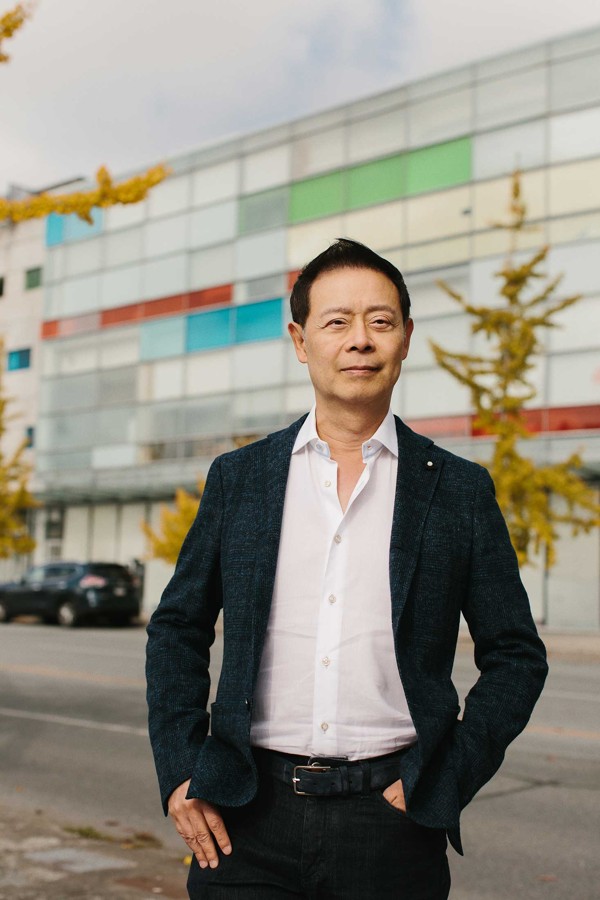
Over a lunch of steaming soup at Chef Hung Taiwanese Beef Noodle, a bustling second-floor restaurant, the mall’s developer, Thomas Fung, explains how he arrived at the idea. Fung, 67, is slim, with spiky black hair and delicate features. The son of a prominent Hong Kong financier, he arrived in Vancouver in the 1980s and did everything from running bakeries to film production. He soon grasped that the city was about to change dramatically.
“I believed that in the coming 10 years, because of the 1997 issue in Hong Kong, there would be a lot of new immigrants coming over here,” Fung says. He knew they would want the comforts of home, which led him to conceive a shopping centre that would stock the same goods as the megamalls of Hong Kong’s Causeway Bay.
At the time, there were no Asian-style malls in North America, and for six months he could not find any tenants for his proposed project. So he offered to buy a 50 per cent equity stake in any store setting up in Aberdeen, giving retailers an option to buy back the shares with no interest if business flourished. Within a year of Aberdeen’s opening, almost 95 per cent had done just that, and the mall has boomed since, expanding in several phases to 380,000 square feet and more than 160 shops and restaurants, plus offices and flats.
Fung is now one of Vancouver’s most prominent entrepreneurs, with his Fairchild Group operating radio and TV stations in Chinese and other minority languages across Canada. He has also worked with Asian retailers to bring their wares to North America. Fung sees Vancouver as the Western city best positioned to prosper from China’s inexorable rise. “Geographically, Vancouver is the closest city in the West to China,” Fung says. Just as important, “social tension is the least in Canada compared to any other country in the Western world. This is a multicultural society. We get along well. It’s the perfect place.”
Asian community blamed for Vancouver’s housing affordability crisis – but is this a political beat-up?
But he acknowledges that the distortions in the local economy are disconcerting. “When I see some of the old-timers in my neighbourhood,” Fung says, “a lot of them are moving out.” Often, a retiree’s income simply can’t cover the property taxes on a home with an assessed value that is well into the millions. Fung says he has stayed out of real estate development for the past half-dozen years, fearing that Vancouver’s economic fundamentals can’t justify the cost of its housing.
The province’s policies are showing signs of producing the desired effect. Residential sales in greater Vancouver fell 44 per cent in September from a year earlier, to the lowest level for that month since 2012. Prices are starting to decline, and houses are staying on the market longer. But those statistics are also exposing the city’s underlying economic weakness.
By some estimates, home sales, construction and related activities account for as much as 40 per cent of British Columbia’s gross domestic product. Among the 60 companies on the S&P/TSX 60, a benchmark Canadian stock index, only five are based in Vancouver, and four of those are mining operations with relatively few local employees. (The other is the telecommunications company Telus.) The aerospace sector is modest, even though Vancouver’s southern suburbs are about a two-hour drive from Boeing’s Seattle assembly plant.
The closest the city came to developing a significant financial industry was a 1980s penny-stock boom, in which thousands of tiny companies, many of them covers for scams, listed on the now-defunct Vancouver Stock Exchange. The brightest spot is probably the city’s film industry, a hub for big-ticket productions such as the Deadpool movies and Star Trek: Beyond.
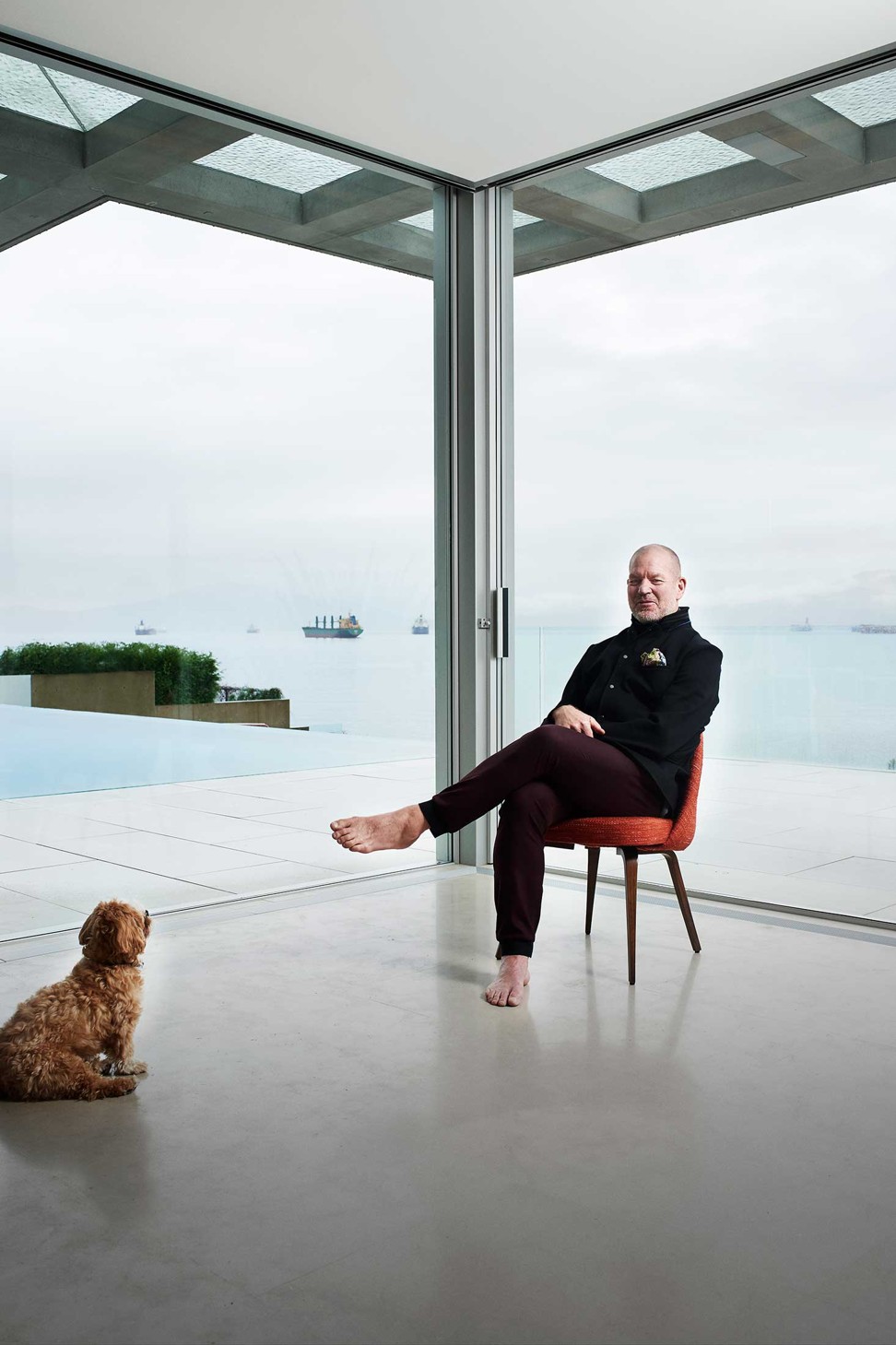
With few top-drawer corporate positions available, salaries tend to be low. Vancouver’s median household income of about US$61,000 ranks 50th among North American metropolitan areas, according to research by Andy Yan, director of the City Program at British Columbia’s Simon Fraser University. Diversifying the economy is an urgent priority for civic leaders.
Former mayor Gregor Robertson, who recently stepped down after almost a decade in office, tried to attract renewable energy start-ups and other clean-tech companies. The previous provincial government wanted to expand tourism and encourage advanced manufacturing of ships and aircraft. These ideas all ran into the same problem: rent that was too high. And the more that land prices have crowded out other industries, the more the economy has leaned on property – a vicious cycle with no obvious exit.
The main exception to this pattern is an industry quite accustomed to high property prices: technology, where employment and revenue numbers are climbing. A few years ago, Microsoft converted the top floors of a run-down Sears store into a gleaming, block-long office. A few streets away, in an area blossoming with branch locations for other US internet giants, Amazon is transforming a 1950s post office into a 3,000-employee research hub. Canada’s liberal immigration system, which approves visas for highly skilled workers in as little as two weeks, is part of the draw for tech companies, as are Vancouver’s low salaries.
Hong Kong, Macau pivotal players in massive criminal racket using Canadian casinos, ‘dirty money’ report claims
But then, the reason the tech industry has grown accustomed to high property prices is that it usually drives them. An ongoing influx of lavishly compensated tech jobs will give the city a broader economic base; it will not do much to make Vancouver more liveable for the teachers, nurses, small-business owners and artists now struggling to survive there. For them, the vicious cycle only spins on.
Building a global business in Vancouver is not impossible. Just ask Wilson, who founded Lululemon there in 1998. Though the company now has stores in 13 countries and a New York stock market listing, its headquarters remain near the city’s waterfront, just off a jogging path jammed with runners wearing Lululemon products. Retail lightning strikes do not come much more electric: it would not be an exaggeration to say that the company changed how people dress, making Wilson one of Canada’s richest citizens and generating dozens of imitators in an athleisure category that now has more than US$50 billion in annual sales in the US alone, according to researcher NPD Group.
The global capital flowing out of China across the world, you’d have to be an idiot not to acknowledge it. You know, we could just be at the cusp of that
Wilson left Lululemon in 2015 after a series of controversies – the most intense following his remark that “some women’s bodies just don’t actually work” for the company’s yoga wear – though he remains a major shareholder. His next project was backing his wife and son’s introduction of another Vancouver-based clothing brand, Kit + Ace, intended to replicate Lululemon’s casual-chic vibe at an even higher price point. (The Wilson family exited the company in October.)
Yet as Wilson explains, sitting in his office on the top floor of a century-old warehouse, these days he is as interested in bricks and mortar as in quick-drying fabrics. “The global capital flowing out of China across the world, you’d have to be an idiot not to acknowledge it,” he says. “You know, we could just be at the cusp of that.”
To profit from the deluge, he has been buying up land all over town, especially in False Creek Flats, a derelict industrial area that is slated for redevelopment. He estimates that about a third of his holdings are now in real estate. British Columbia’s current government may succeed in slowing inflows temporarily, Wilson says, but China’s boom has created many multimillionaires who need a place to put their money. “So where do you go if you’re Chinese? Sydney, maybe,” he says. “But nowhere, probably, is more friendly than Vancouver.” One way or another, Wilson adds, those funds will find their way to Canada.
In Wilson’s account, global financial forces inevitably overwhelm local measures. Horgan and Eby might succeed in curbing the worst excesses, but set against one of the world’s largest-ever movements of funds, not to mention Vancouver’s own history, the provincial government is unlikely to prove much of an obstacle. There is still a lot of money to be made on Vancouver’s eternal sure bet. That is why, Wilson says, whenever he returns from a trip to Asia, his first thought is simple: “Buy land, Chip. Buy land.” Bloomberg Businessweek
